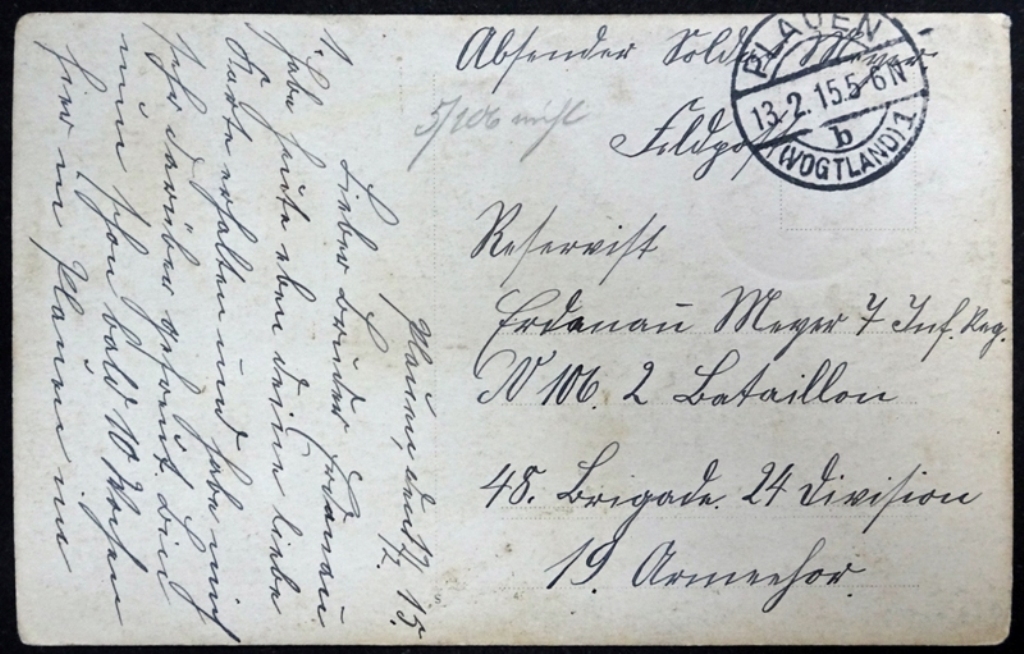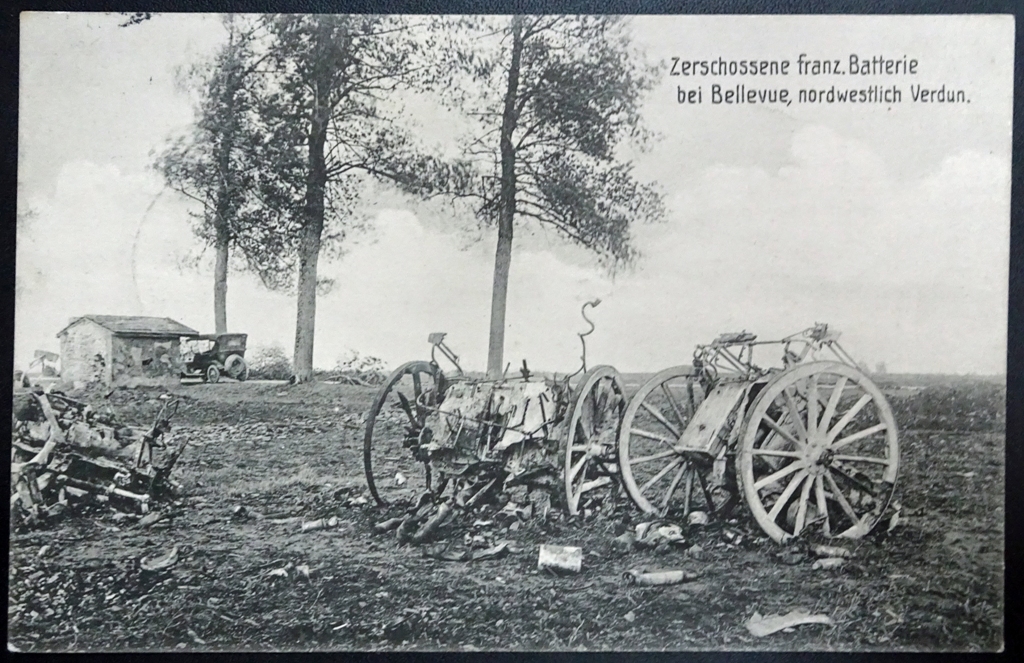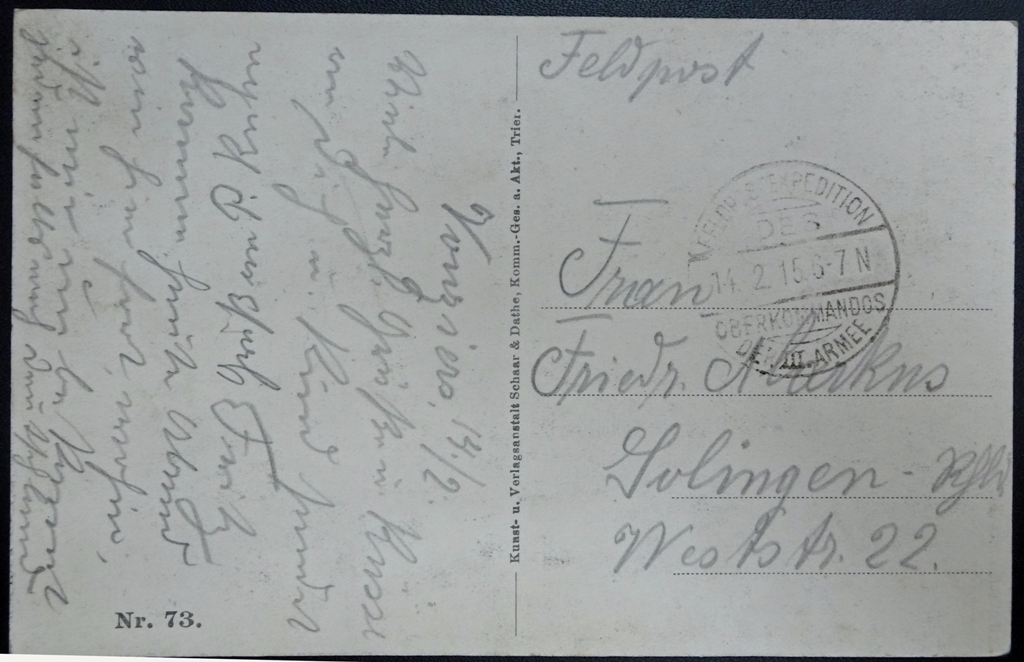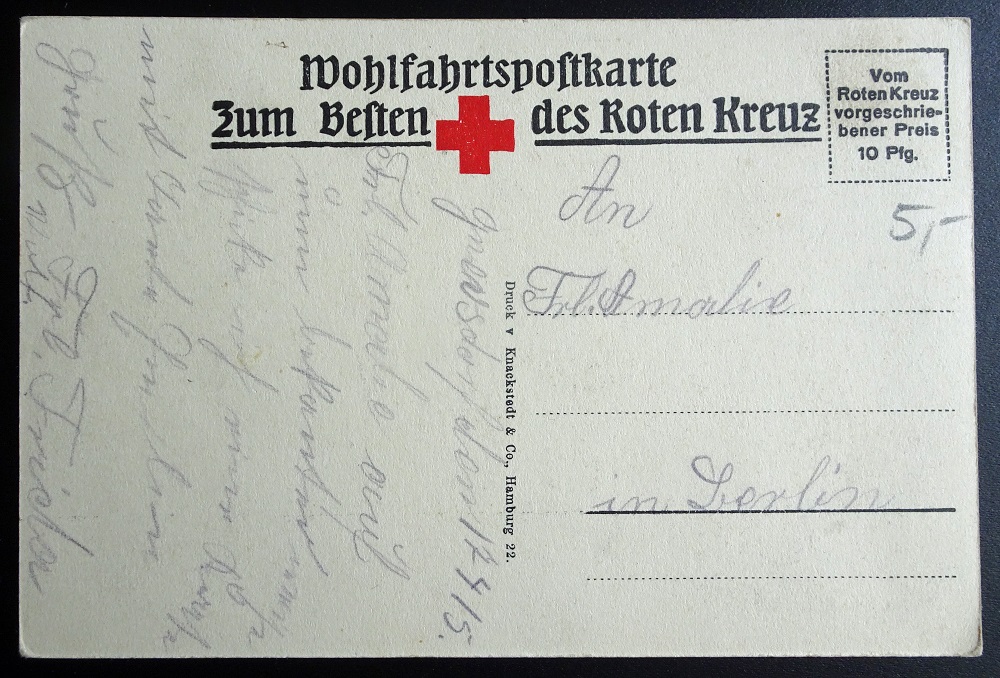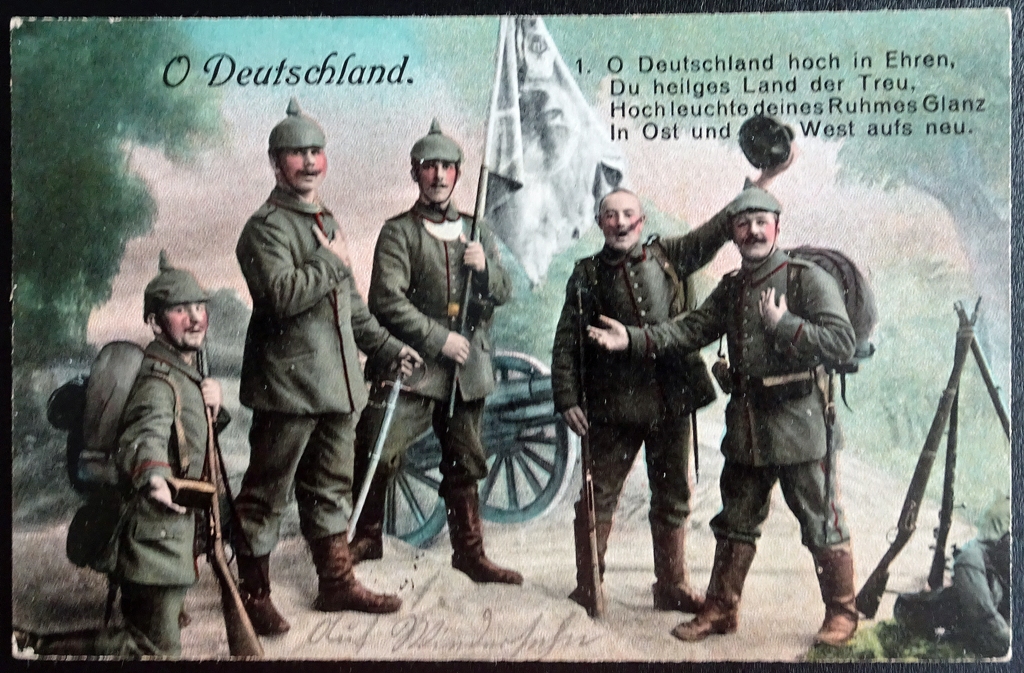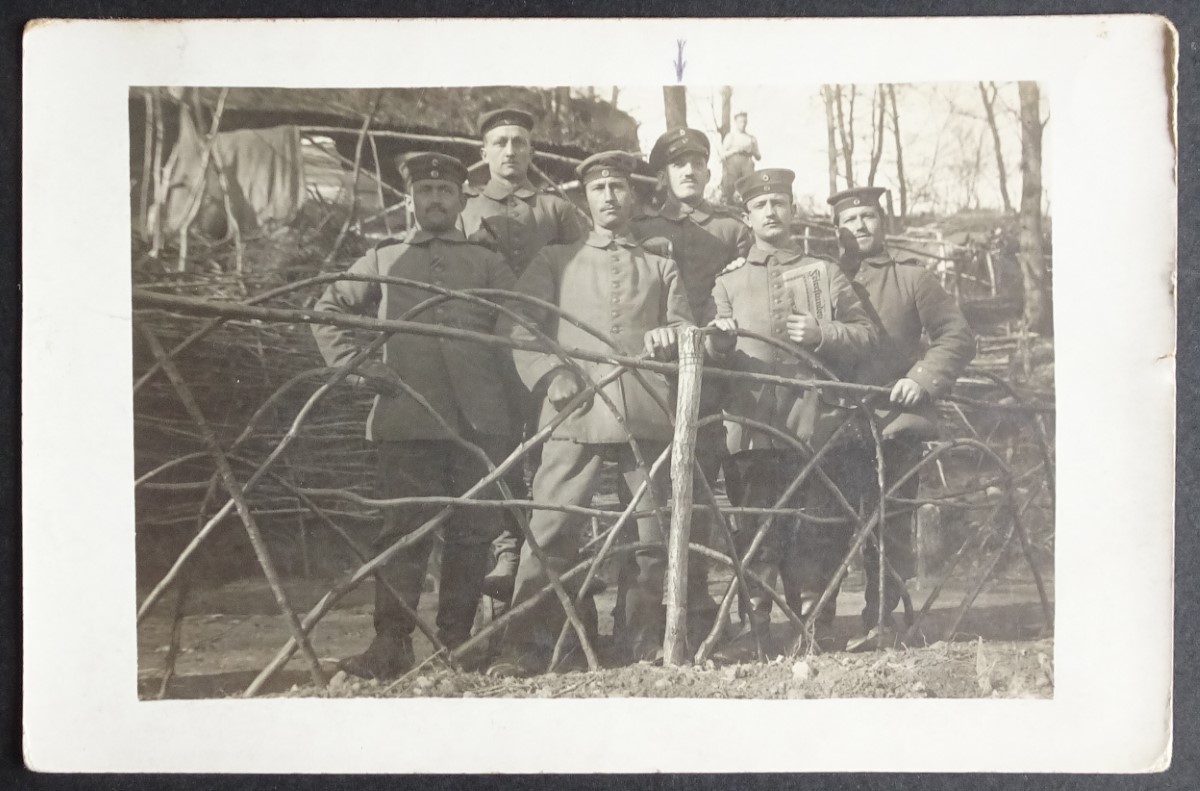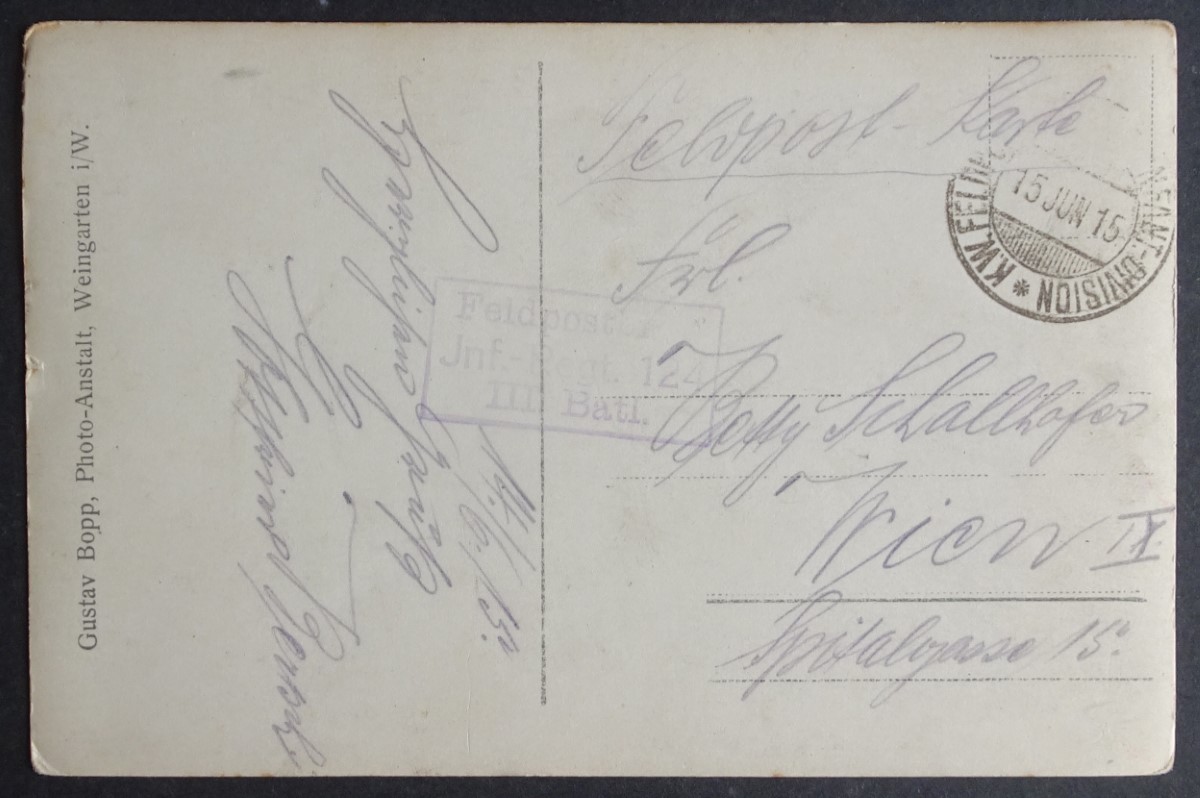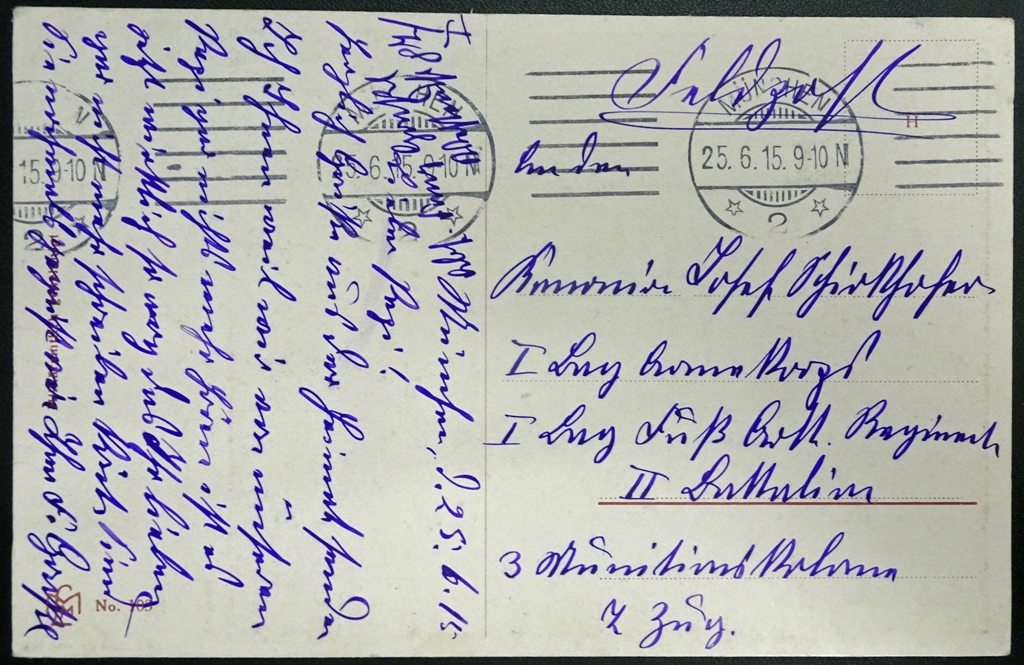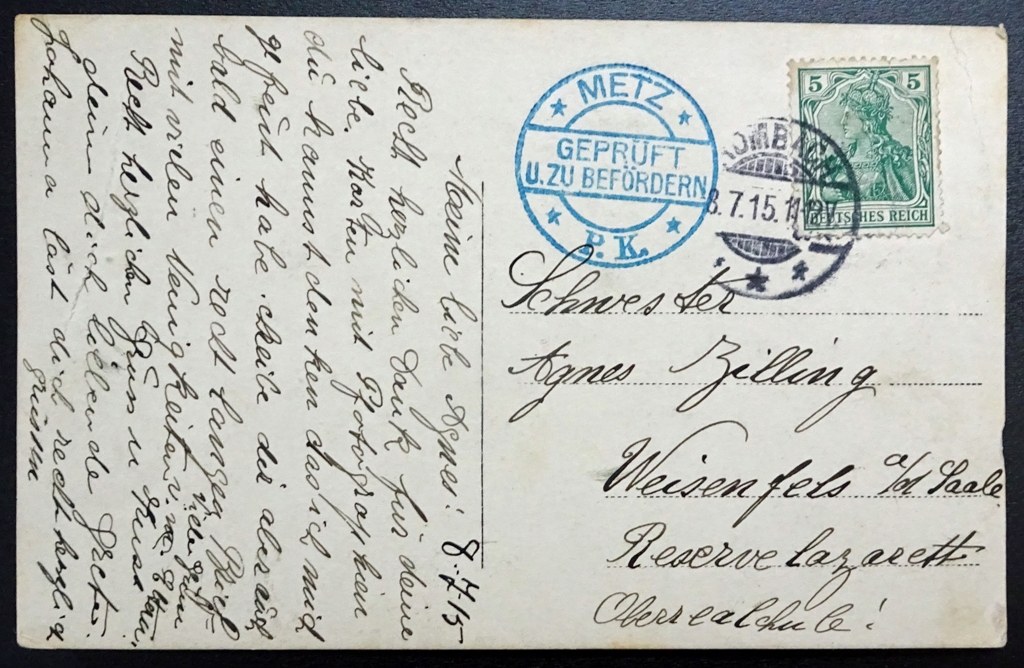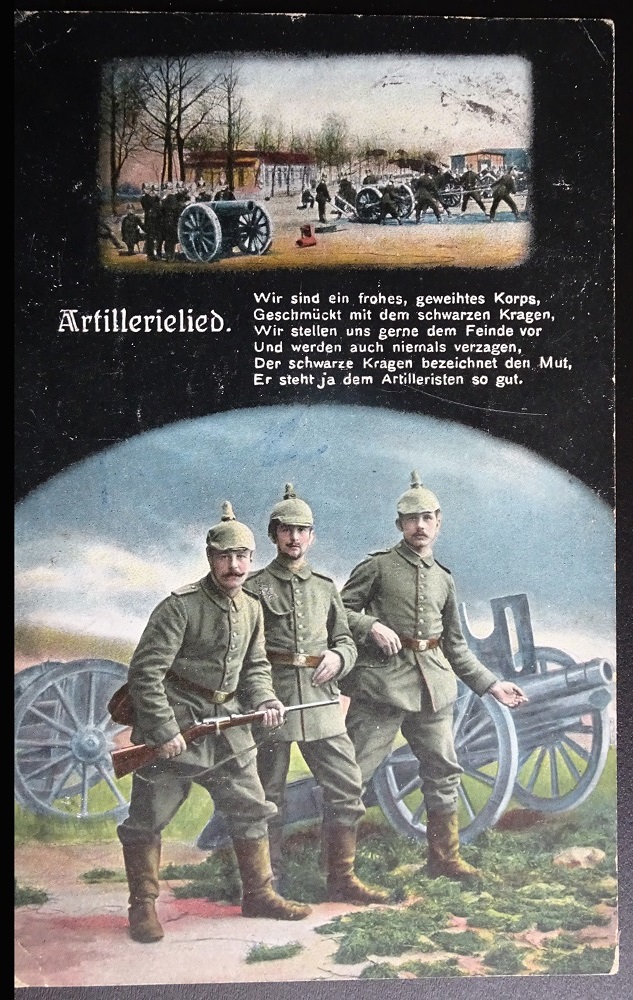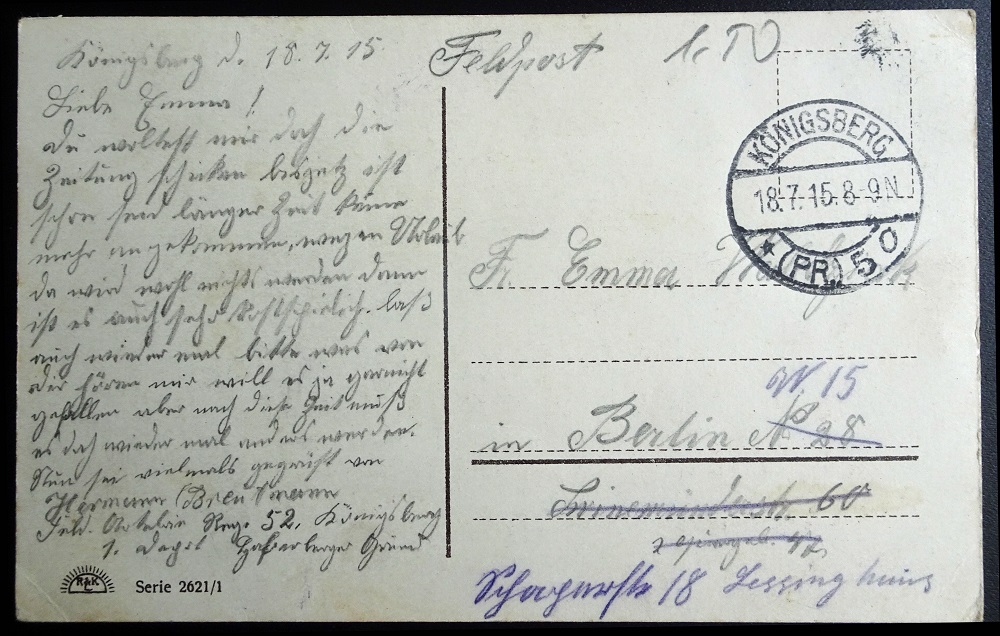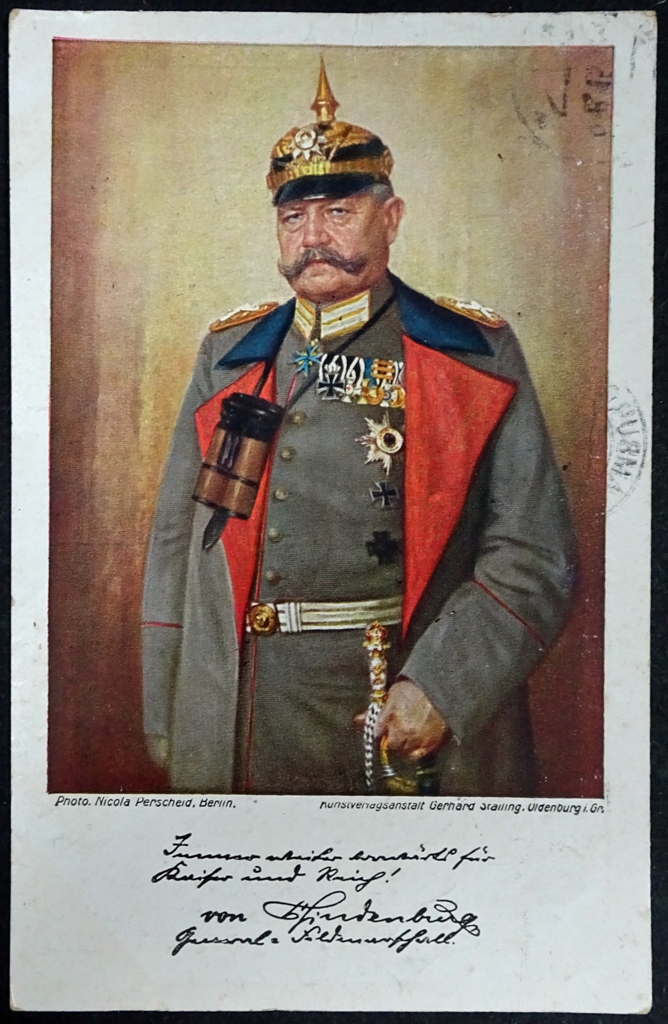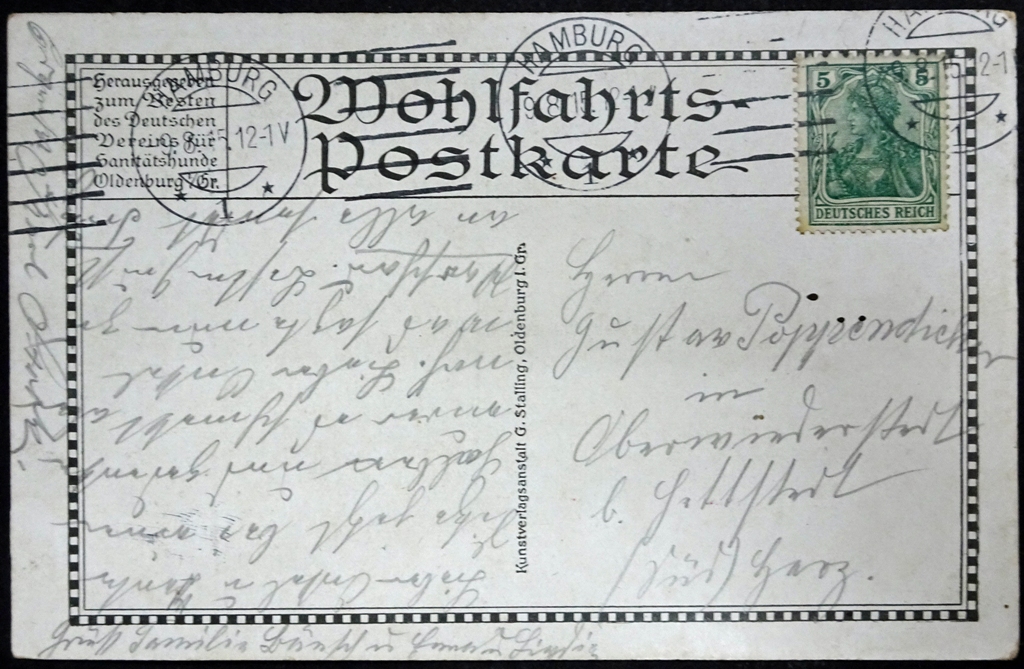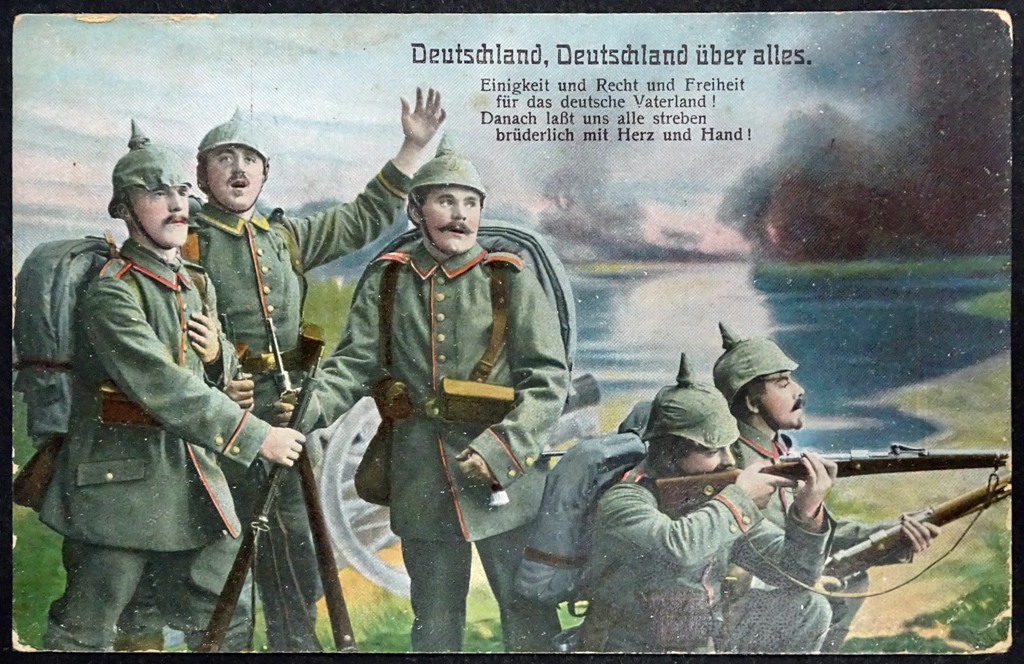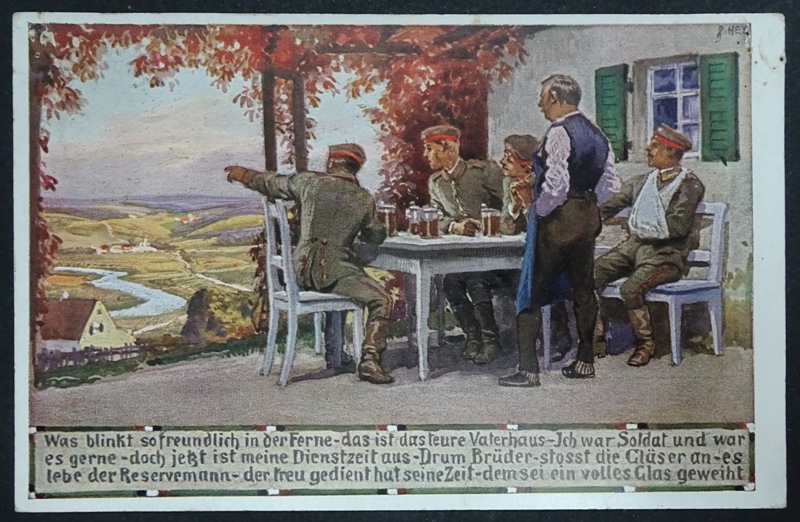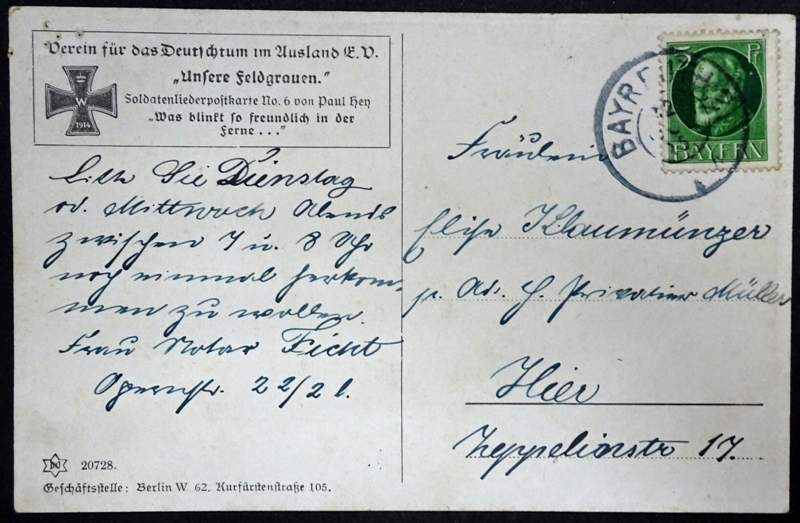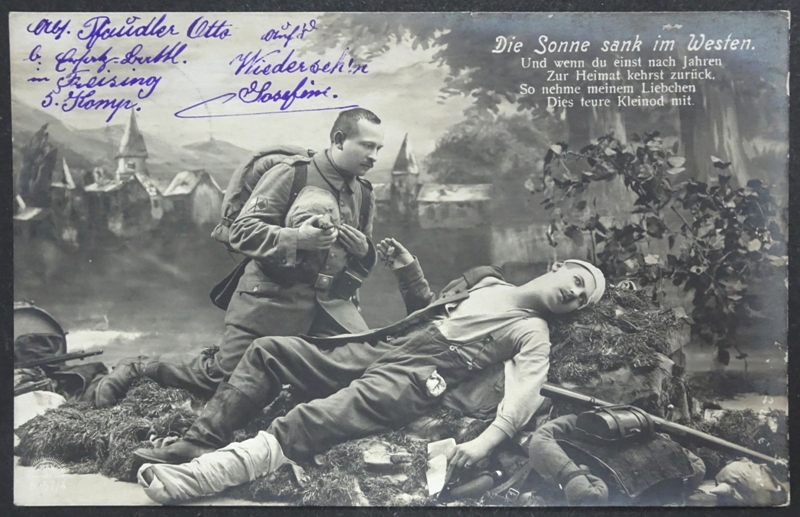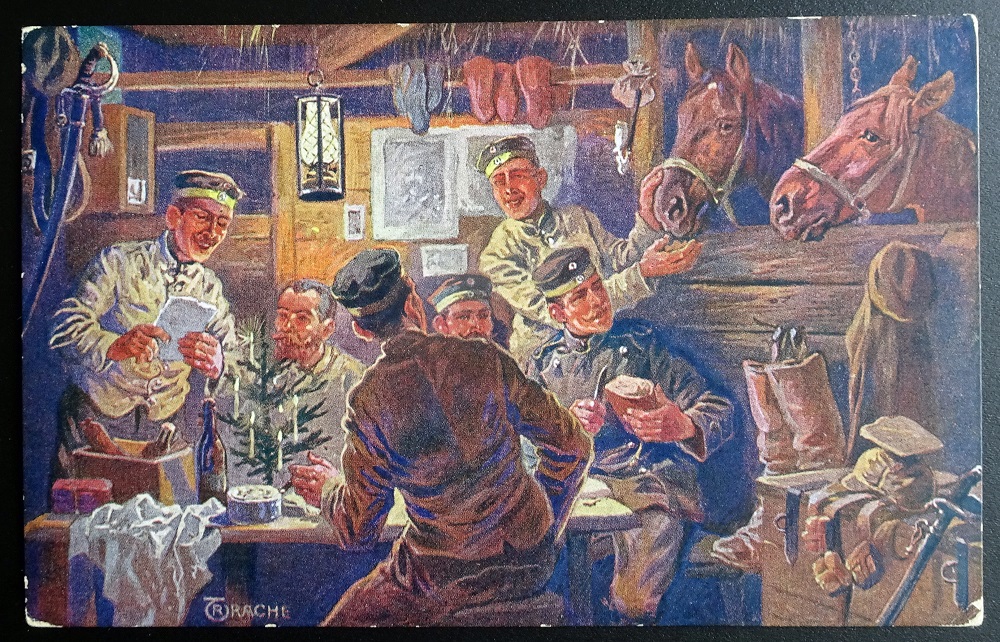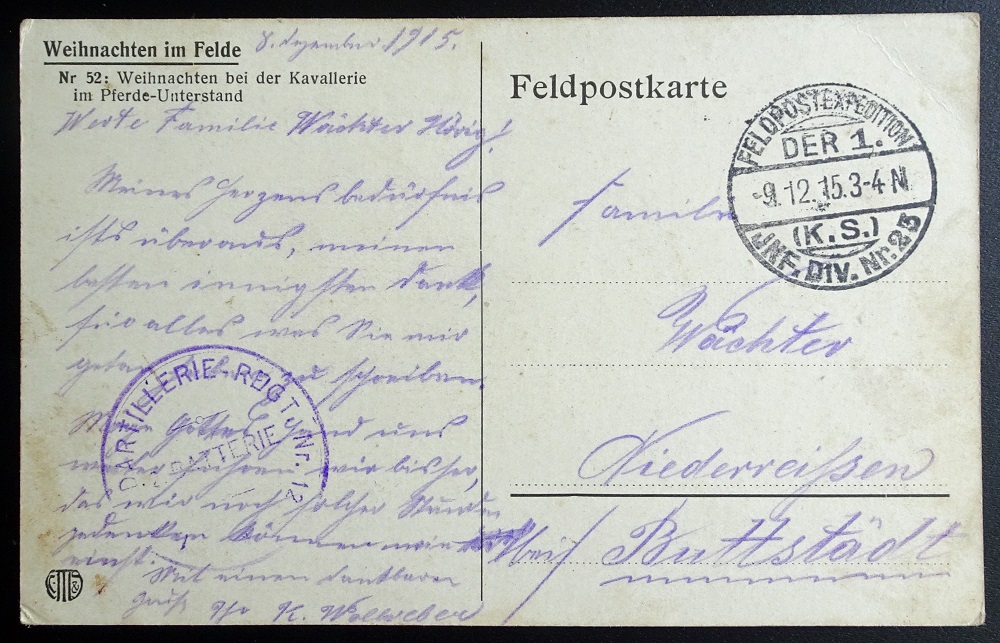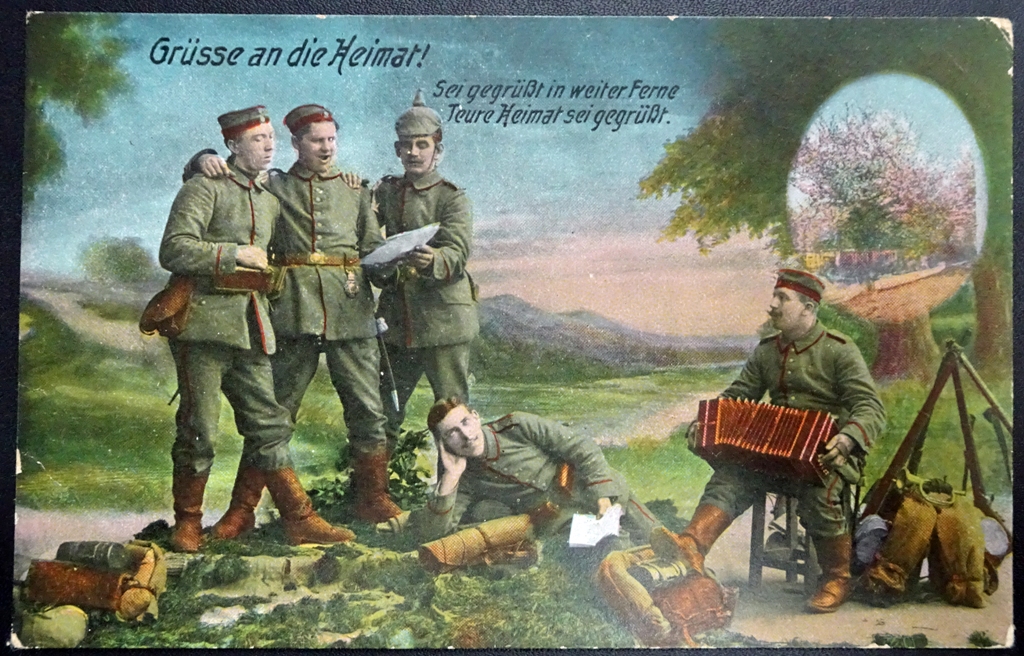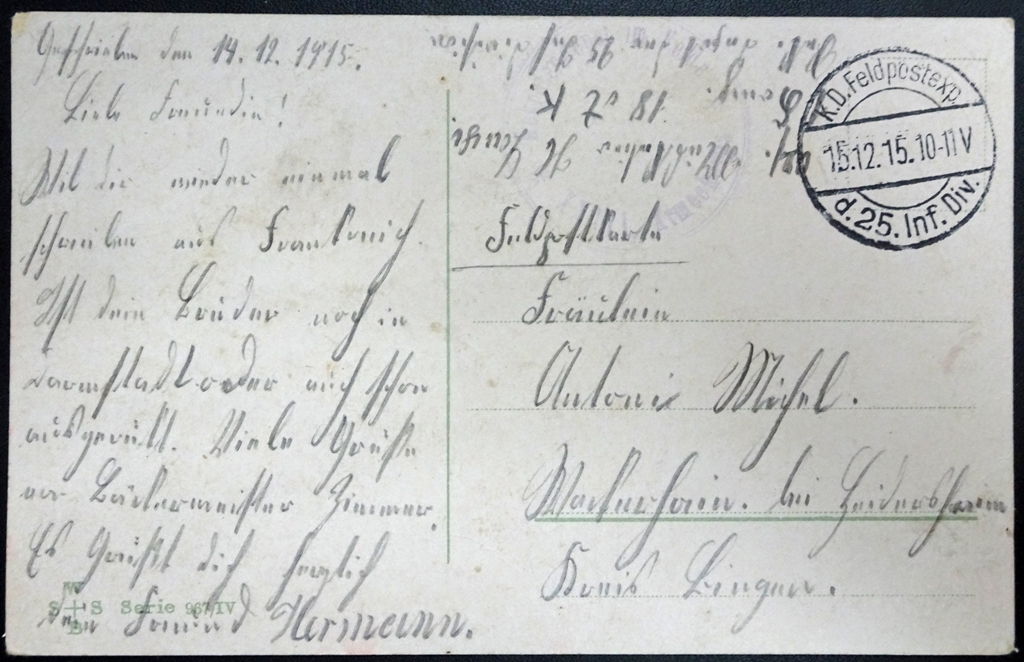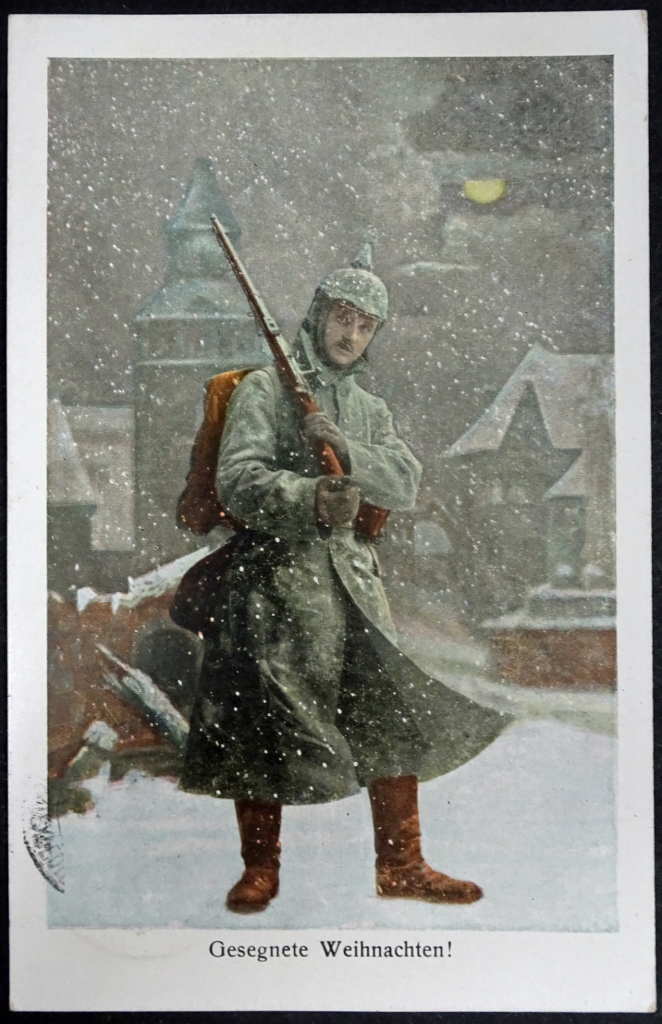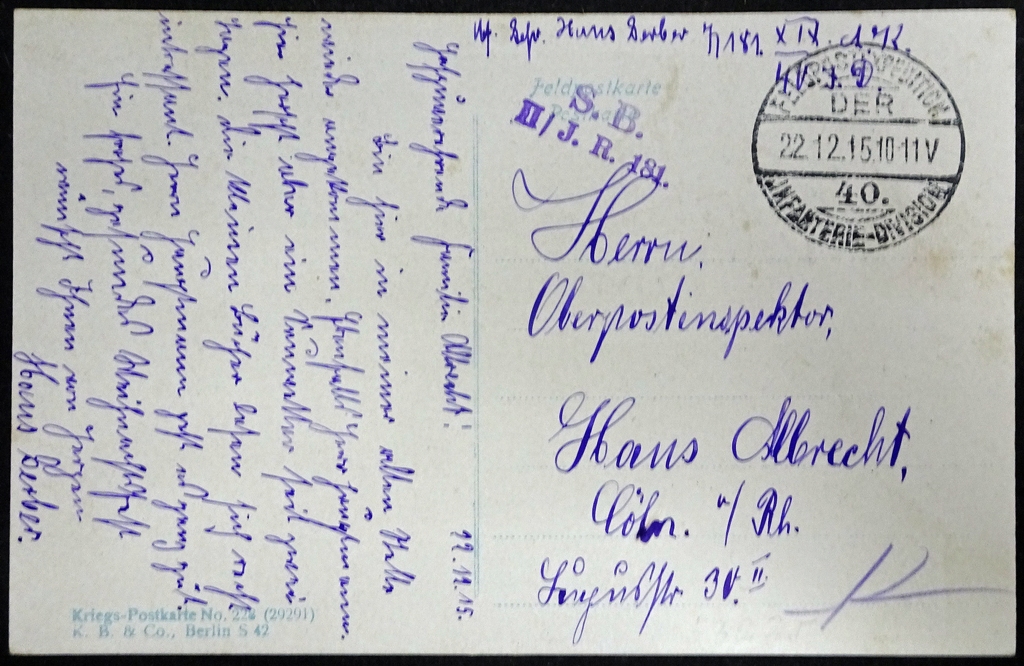GERMAN EMPIRE
MISCELLANEOUS
POSTCARDS
1915

The 1915 postcard page has now been split into four separate pages as it was beginning to get unwieldy. All 1915 Official postcards are now on this page. Official postcards are cards that were issued by the Reich’s post office, had pre-printed (indicia) stamps and were widely available throughout German towns and cities.
Secondly Printed to Private Order postcards are postcards that were generally issued by entities that were advertising an event or commemorating an anniversary, and also had pre-printed stamps, but were not widely available throughout Germany (most were only available at the event they were commemorating).
Thirdly Other postcards are postcards that fall into the same general category as printed to private order however they do not have pre-printed stamps.
Finally, Miscellaneous postcards is where you will find postcards that do not fit into the first three categories (i.e. they are not official, they do not have pre-printed stamps, and they do not commemorate an event).
 Quick Links:
Quick Links:SOLDIERS in the SNOW, VERDUN, RED CROSS, O'DEUTSCHLAND, SOLDIERS POSING, FIELDMARSCHALL MACKENSEN, LADY POSING, ARTILLERY, GOODBYE MY LOVE, HINDENBURG, GERMANY FOREVER, LOOKOUT, IN THE DISTANCE, SUN SINKS in the WEST, CHRISTMAS in the FIELD, GREETINGS HOME, BLESSED CHRISTMAS

SOLDIER'S GROUP PHOTO in the SNOW
(13th Feb 1915)
This postcard shows a group of German soldiers posing outside in the snow. It was quite common in the First World War for units of the army to take group photos and send them home as feldpost postcards.
The reverse of this postcard carries a 'Plauen (Vogtland) 13.2.15' cancellation. Plauen is a small town in central-east Germany. It was carried by feldpost and appears to be sent to a Major of the 106, 2nd Batallion although I can't confirm this.

ZERSCHOSSENE FRANZ
BATTERIE BEI BELLEVUE NORDWESTLICH VERDUN
(14th Feb 1915)
This postcard is a photograph of a battle scene at Verdun. Entitled "Zerschossene franz. Batterie bei Bellevue nordwestlich Verdun" - 'Crushed french Battery at Bellevue northwest Verdun', it is postmarked one week before the actual battle of Verdun commenced (21 February-15 December 1916). The battle became the longest battle in modern military history and was one of several battles that severely depleted the size of the German Army. At Verdun the French lost 377,000 men and the Germans 330,000.
The reverse of this postcard carries a 'FELDPOSTEXHIBITION OBERKOMMANDOS DES III ARMEE - 14.2.15' cancellation.

TELEGRAPHIE des DEUTSCHEN REICHS
RED CROSS POSTCARD
(17th Apr 1915)

O' DEUTSCHLAND
(1st May 1915)
This postcard shows a group of German soldiers singing heartily the words to the well known patriotic song of the times, 'O' Deutschland'
There is another example of an O' Germany postcard sent on 30th Apr 1916.
O Deutschland hoch in Ehren (O Germany high in honor)
Du heiliges Land der Treu (You holy land of the faithful)
Hoch leuchte deines Ruhmes Glanz (High shine your glory shine)
In Ost und West aufs neu (New in East and West)
The reverse of this postcard has a feldpost cancel 'K.D.Feldpostexp - 1.5.15 - Landw.Div.Bredow'.

SOLDIERS POSE for PHOTOGRAPH
(15th Jun 1915)

FIELDMARSCHALL MACKENSEN
(26th Jun 1915)
This postcard depicts a portrait of German Fieldmarshall August von. Mackensen (6th Dec 1849 to 8th Nov 1945)
The reverse of this postcard carries a standard 'MÜNCHEN - 25.6.15' city / date cancellation.

LADY POSING
(8th Jul 1915)

ARTILLERIELIED
(18th Jul 1915)
This Feldpost postcard was sent to Berlin and cancelled Königsberg on 18th Jul 1915 and features a group of artillery men and their weapons.
The words of the song are as follows:
Wir Sind ein frohes, geweites Korps (We are a happy, wide corps)
Geschmucht mit dem schwarzen kragen (smeared with the black collar)
Wir stellen uns gerne dem feinde vor (we like to introduce ourselves to the enemy)
Und werden auch niemals verzagen (and will never despair)
Der Schwarze kragen bezeichnet den Mut (The black collar denotes courage)
Er Steht ja dem Artilleristen so gut (He looks so good to the artillery man)

FAHR WOHL FAHR WOHL MEIN FEURES LIEB
(17th Aug 1915)
This postcard shows a German soldier saying goodbye to his love enclosed in a heart. Above them is a group of cavalry men riding into battle. The text reads "Fahr wohl Fahr wohl mein feures lieb." or roughly translated 'Ride well, ride well my love'.
The reverse of this postcard has an Erlangen 17th Aug 1915 cancel and was sent through the feldpost postal system. By this stage the First World War was exactly a year old.

GENERAL FIELDMARSCHALL HINDENBURG
(9th Aug 1915)
This postcard shows a potrait of Paul von Hindenburg from a photo by Nicola Perscheid in Berlin. Hindenburg was a national hero due to his success at the battle of Tannenburg (exactly one year earlier in Aug 1914) and later became a Generalfeldmarschall and statesman who commanded the German military during the second half of World War I before later being elected President of the German Reich in 1925.
The reverse of the postcard is inscribed "Wohlfahrts postkarte" or Welfare postcard and was printed by Kunstverlagsanstalt G. Stalling. Oldenburg 1. Germany. There is a very curious inscription in the top left hand corner that reads "Herausgegeben zum Besten des Deutschen Vereins für sanitätshunde Oldenburg' roughly translated as 'Published for the benefit of the German Association for Sanitary Dogs Oldenburg'. The postcard is cancelled "Hamburg 9.8.15" and has a 5Pf Germania stamp.

DEUTSCHLAND, DEUTSCHLAND ÜBER ALLES
(23rd Sep 1915)
This postcard shows a group of German soldiers near a lake with the smoke of battle rising in the distance.
Einigkeit und Recht und Freiheit (Unity and justice and freedom)
für das deutsche Vaterland! (for the German fatherland!)
Danach lasst uns alle streben (Then let us all strive)
brüderlich mit Herz und Hand! (brotherly with heart and hand!)
The reverse of this postcard has a feldpost cancel 'Nr 195 - 23-9-15'.

AUF VORPOSTEN
LOOKOUT
(14th Oct 1915)
This postcard shows a group of German soldier on the lookout for enemy troops. The text reads "Auf Vorposten" or roughly translated 'On Outpost'.
The reverse of this postcard has a "Feldpostexped 0.5 Bayer - 14.10.15 cancel and has an additional stamp "Bayr 14 Inft Re, 6. Kompagnie" or 'Bavarian 14th Infantry Regiment, 6th Company'.

WAS BLINKT SO FREUNDLICH IN DER FERNE...'
(Dec 1915)
This postcard shows a group of German Reservist soldiers relaxing behind the front line, outside a cafe enjoying a glass of beer during the war. They appear to be discussing something in the distance. The signature in the top right is Paul Hen. The postcard says "Was blinkt so freundlich in der ferne..." or 'What flashes so friendly in the distance ...'
The front of the postcard reads "Was blinkt so freundlich in der Ferne - das ist das Feure Vaterhaus - Ich war Soldat und war es gerne - doch jezt ist meine Dienstzeit aus - Drum Brüder - stosst die glӓser an - es lebe der Reservemann - der kreu gedienthat seine Zeit - dem sei ein volles glas geweiht" a rough translation would be 'What blinks so friendly in the distance - that is the Feure Father's House - I was a soldier and was happy - but now my service is out - Drum brothers - pushes the happy - long live the reserve man - who served faithfully his time - was a full glass consecrated'.
The reverse of the card shows the 'serial number' to be 20728 and it was printed by Geschӓftsstelle: Berlin W62 Kurfüriteenstraβe 105. The box at the top left describes the title of the card as well as a few details as follows "Verein für das Deutschtum im Ausland E.V. "Unsere feldgrauen". Soldatenlieder Postkarte No. 6 von Paul Hen "Was blinkt so freundlich in der ferne..." - 'Association for Germanism abroad E.V. "Our field gray". Soldiers Songs Postcard no. 6 by Paul Hen "What blinks so friendly in the distance ..."
The postage paid was 5Pf and the stamp is a green 5Pf Bayern issued stamp.

DIE SONNE SANK IM WESTEN
(4th Dec 1915)
This postcard shows a dying soldier being watched over by a comrade. This postcard is likely from the earlier part of the war when battle, death and sarifice were all romanticised with no signs of the blood, sweat and pain of real battle. This postcard is inscribed 'Die Sonne sank im Westen' - 'The sun sinks in the west'.
The front of the postcard reads "Die Sonne sank im Westen. Und wenn du nach jahren Zur Heimat kehrst zuruck. So nehme meinen Liebchen Dies teure Kleinod mit" which translates as 'The sun sank in the west. And if you return home after years. So take my sweetheart with this expensive gem.' The sun sinking in the west being a meaphor for this fallen soldier's life coming to an end.
The reverse of the card indicates that this was a feldpost item, sent from a soldier to his wife / girlfriend in Riefensberg, Austria and cancelled 'Freising 2 V.8-9 b on 4th December 1915'.
It is interesting that the postcard was sent from Freising in Bavaria (not from the front) and has the words "Auf Wiedershen" - 'Goodbye' Josephine, perhaps this was from a recently enlisted soldier about to be set to the front. If so it's a little depressing that he would send a postcard with a dying soldier pictured on it to this lady.

WEINACHTEN IM FELDE
CHRISTMAS IN THE FIELD
(9th Dec 1915)
This Feldpostcard features a group of German soldiers relaxing and celebrating Christmas.

GRÜSSE AN DIE HEIMAT!
(15th Dec 1915)
This postcard shows a group of German soldier practising their singing, perhaps Christmas carols. The text reads "Grüße an die Heimat! Sei gegrüßt in weiter Ferne Teure Heimat sei gegrüßt" or roughly translated 'Greetings to the homeland!'.
The reverse of this postcard has a "K.D. Feldpostexp d.25 Inf Div - 15.12.15 cancel, 10 days before Christmas 1915.

GESEGNETE WEIHNACHTEN
BLESSED CHRISTMAS
(22nd Dec 1915)
This postcard depicts a soldier standing forlornly in a snow storm with the inscription "Gesegnete Weihnachten!" or 'Blessed Christmas'.
2
The reverse of the card is cancelled by Feldpost on the 22nd December 1915, however the original postcard was dated 12th November 1915 so there was a month delay between writting the postcard and it being processed through the feldpost system. There is an inscription on the lower right that says "Kriegs-Postkarte No. 22? (29291) K.B & Co., Berlin S42.



